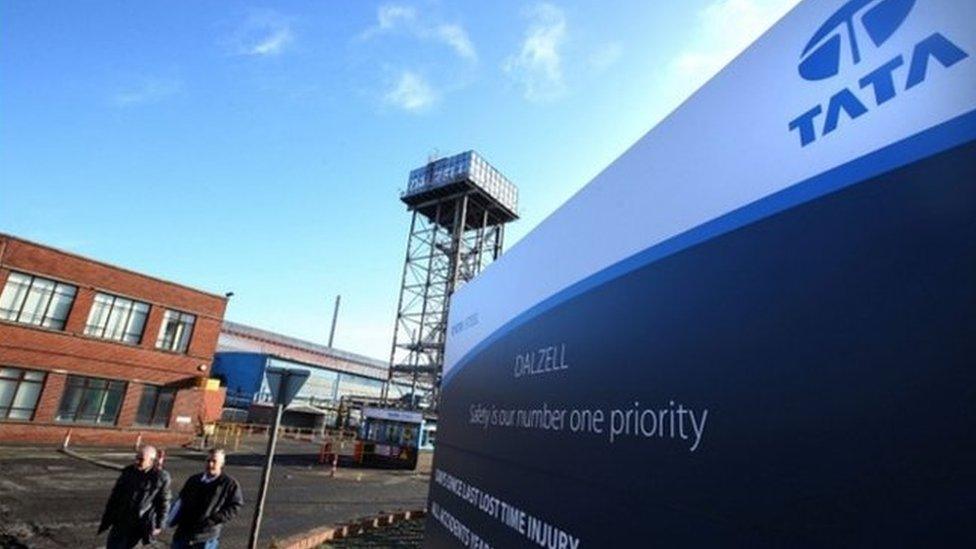'Last' Scottish steelworks at Dalzell plant in Motherwell formally reopens
- Published
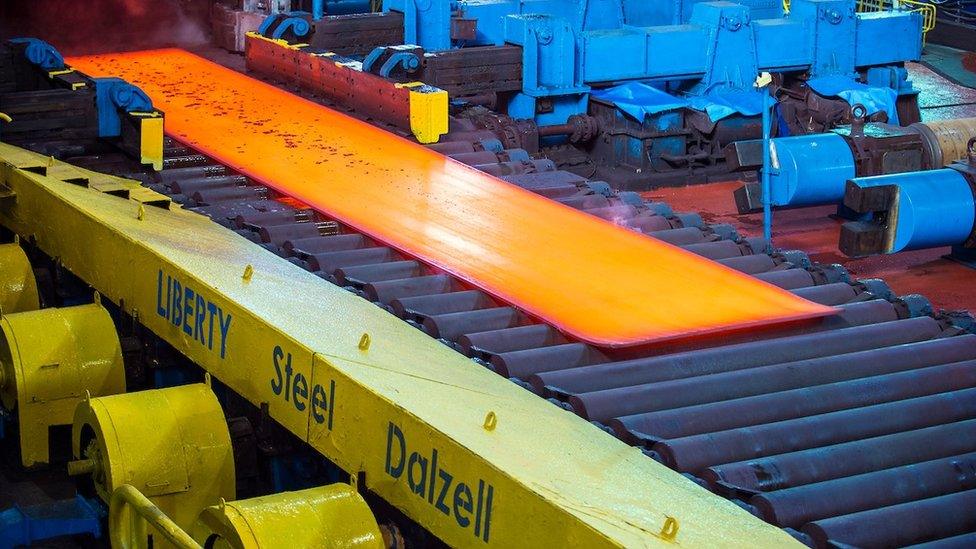
Liberty House said the plant had already secured "a significant number" of orders for steel plate
Scotland's last major steelworks has been formally reopened by First Minister Nicola Sturgeon.
The Dalzell plate mill in Motherwell was mothballed by Tata Steel in 2015, along with the Clydebridge plant in Cambuslang. About 225 jobs were lost.
Liberty House took over both facilities in April, under a deal brokered by the Scottish government's steel task force.
Dalzell is now back to rolling steel for industry. Liberty aims to re-open Clydebridge in the near future.
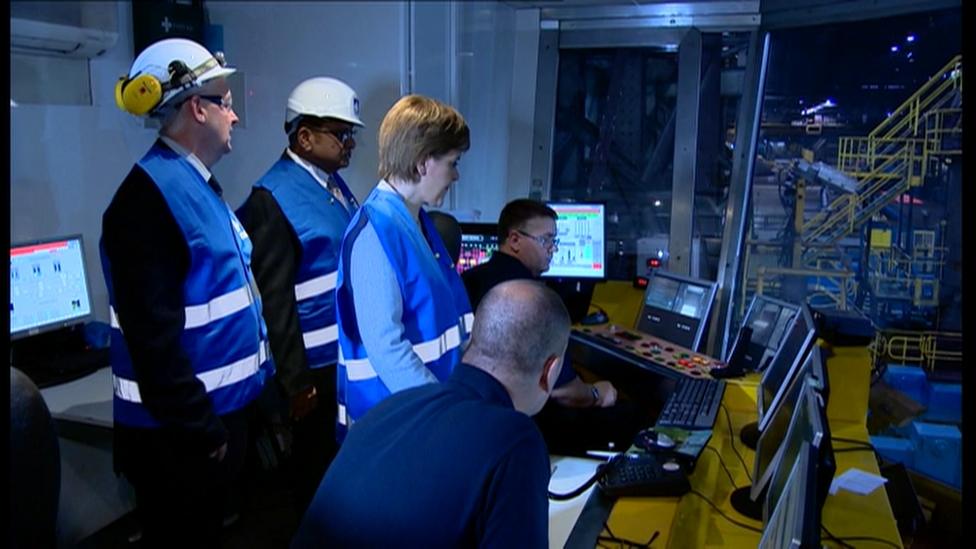
First Minister Nicola Sturgeon officially opened the Dalzell steel operation
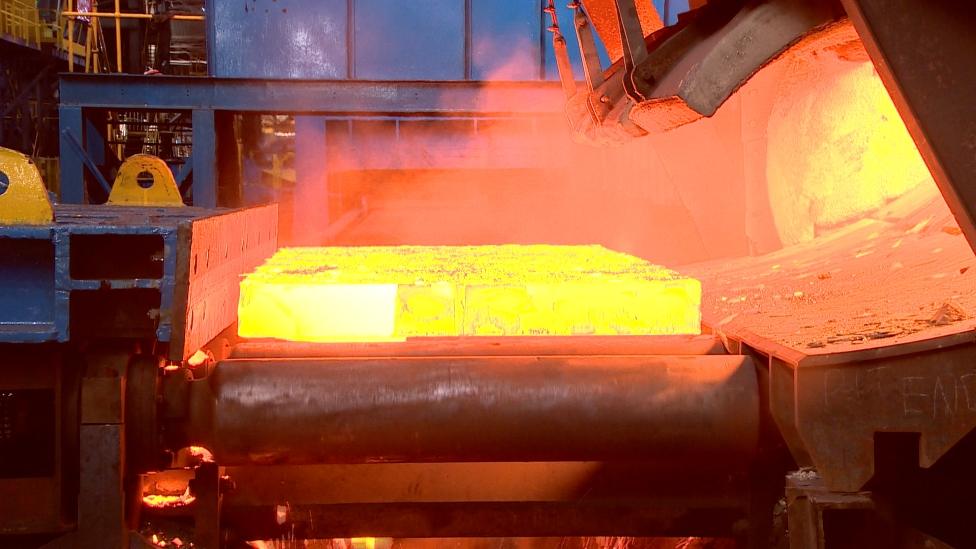
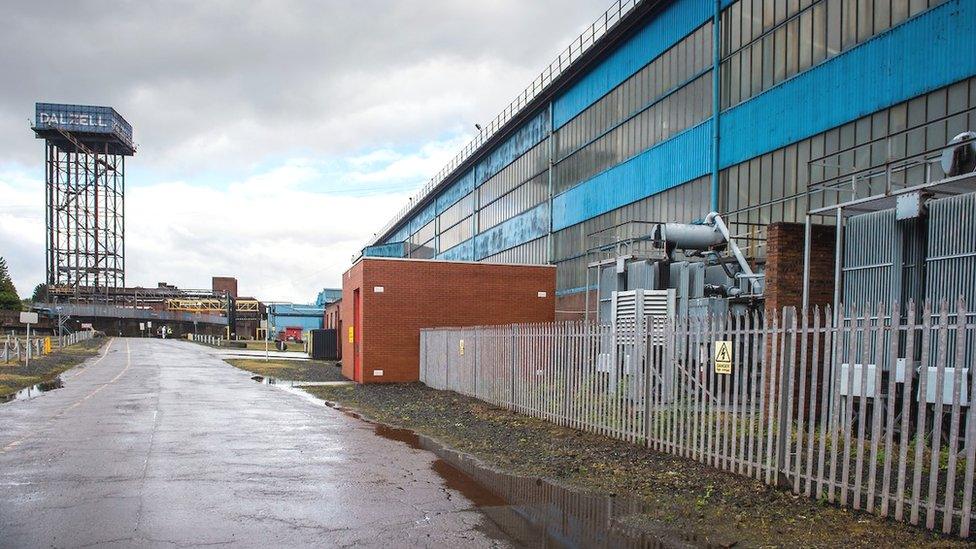
The mothballed Dalzell plant was bought by Liberty Steel in April
Ms Sturgeon was given a tour of the Dalzell mill and and met workers and apprentices during the official re-opening.
The first minister said: "This is a fantastic day for Dalzell workers, for Motherwell and for Scotland's steel industry.
"Restarting steel production has only been possible thanks to the tremendous team effort of everyone involved in the steel taskforce to find a viable future for this site, meaning workers here in Lanarkshire can once again produce world-class products.
"Liberty House are seizing an exciting opportunity and the Scottish government and its agencies will continue to work with Sanjeev Gupta and his team to ensure a successful future in Scotland."
Liberty Group has hired 120 staff to work at Dalzell - many of them former employees - and hopes to increase employment to 200 within 18 months.
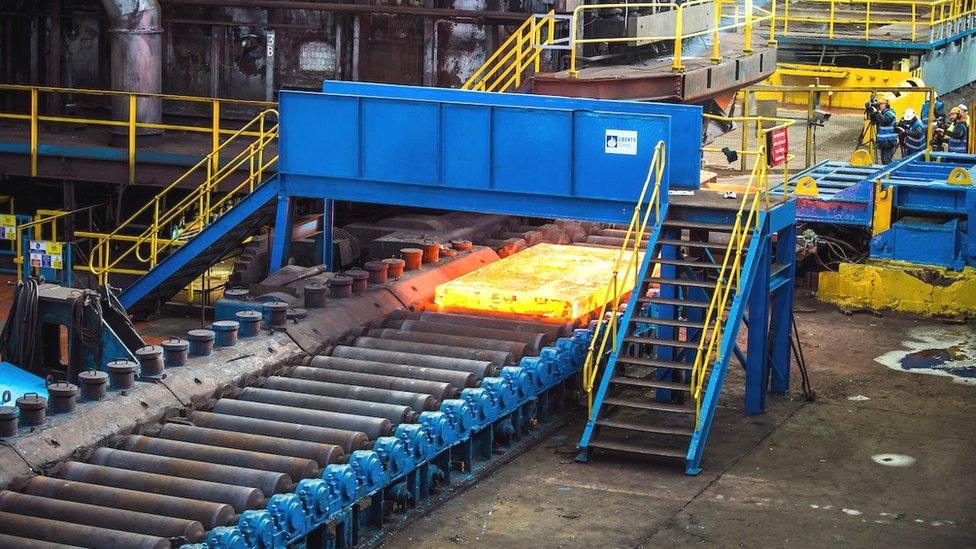
Jon Bolton, chief executive of Liberty Steel UK, said the reopening of the plant was "hugely important" to the steel industry in Scotland.
He said: "Without it restarting, there wouldn't be a steel industry in Scotland.
"It's not just about boosting the steel industry, it's about the economy. It's expected to bring in another £15m a year to the local economy.
"Today was the day we said we would start production and we are doing so with a vengeance. We intend to ramp up production to 150,000 tonnes a year."
Mr Bolton said he was "confident" Clydebridge would also reopen in the "near future", adding that other potential uses such as for manufacturing towers for wind turbines are under consideration for that plant.
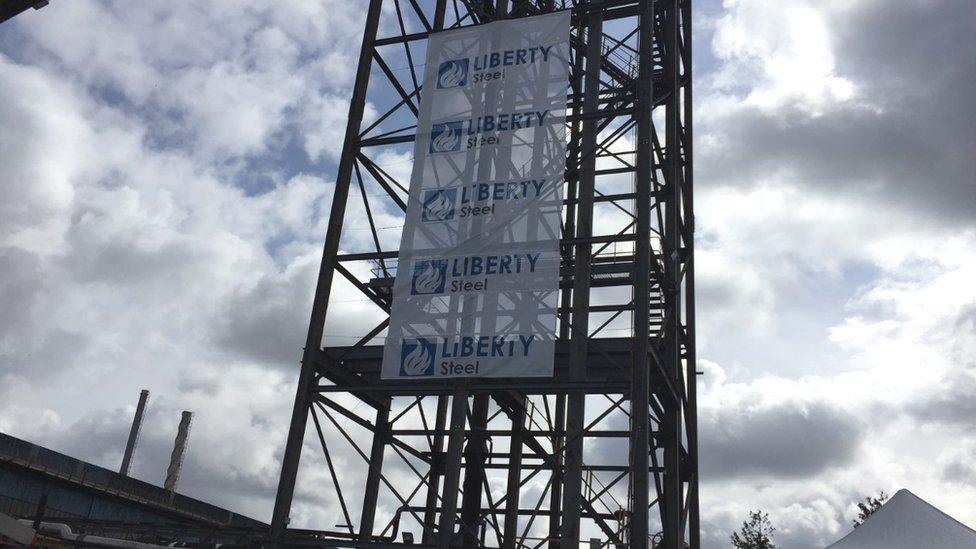
Dalzell has traditionally provided steel plate for industries such as shipbuilding, construction, mining, oil production and heavy vehicle manufacture.
Liberty said the plant had already secured "a significant number" of orders for plate, particularly in the construction and energy sectors.
The deputy leader of North Lanarkshire Council, Paul Kelly, said the local community was "delighted" it was reopening.
He said: "It's been at the heart of our community for over 140 years, it's dominated the skyline and it's an integral part of what we're about as a local community.
"So the feeling really is one of optimism as we look to the future and how we can make sure this works out and creates employment opportunities."
'Spirit of partnership'
The Scottish government set up a steel task force after Tata announced it was mothballing its plants in Motherwell and Cambuslang, with a total loss of 270 posts.
The government later bought the mills and immediately sold them to Liberty.
Liberty House Group executive chairman Sanjeev Gupta paid tribute to the support of the Scottish government and Scottish Enterprise in helping the company rescue the plate works.
He said: "There is an impressive spirit of partnership here and a determination to give the Scottish steel industry a real future.
"From our side we promised we would get this important plant open again by the autumn and today we are proud to be fulfilling that promise."
He said the firm saw "great opportunities for investment in Scotland and regard this as a very fertile business environment".
Scottish Labour's economy spokesman Richard Leonard said: "Steel is written into the DNA of communities in Lanarkshire and reopening the plant is an important first step in keeping those traditions alive.
"The next steps here are to develop and implement an effective industrial strategy to ensure that Dalzell can have a long future and provide jobs for current and future steelworkers in Scotland."
"There are also vital lessons to be learned here for the long term future. Governments should not simply sit on their hands waiting for a crisis to happen before taking action in key industries and should work to ensure the security of high skill, high quality jobs."
- Published9 September 2016
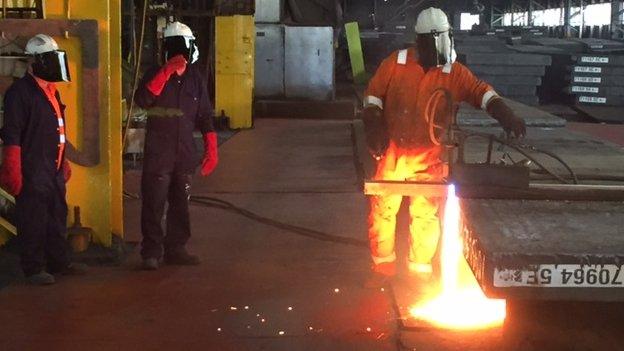
- Published11 August 2016
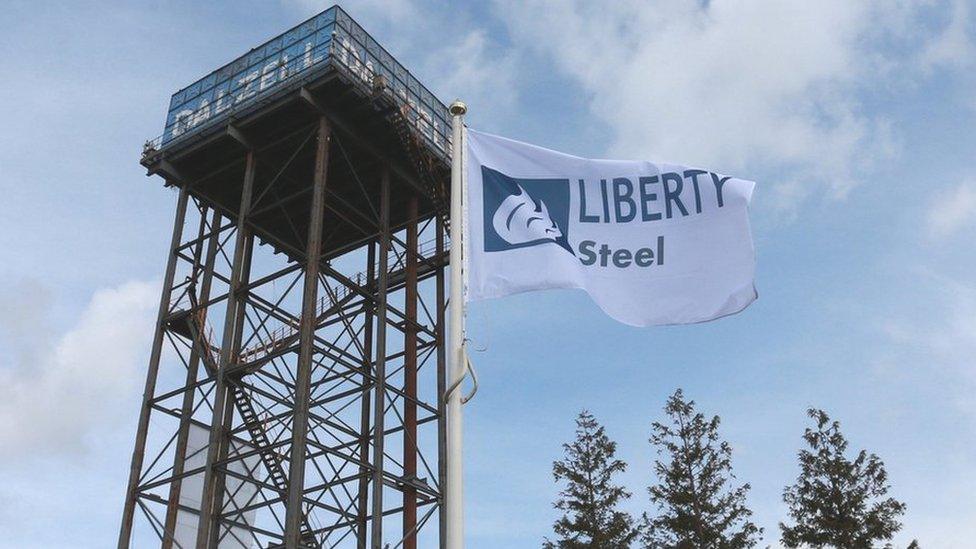
- Published8 April 2016
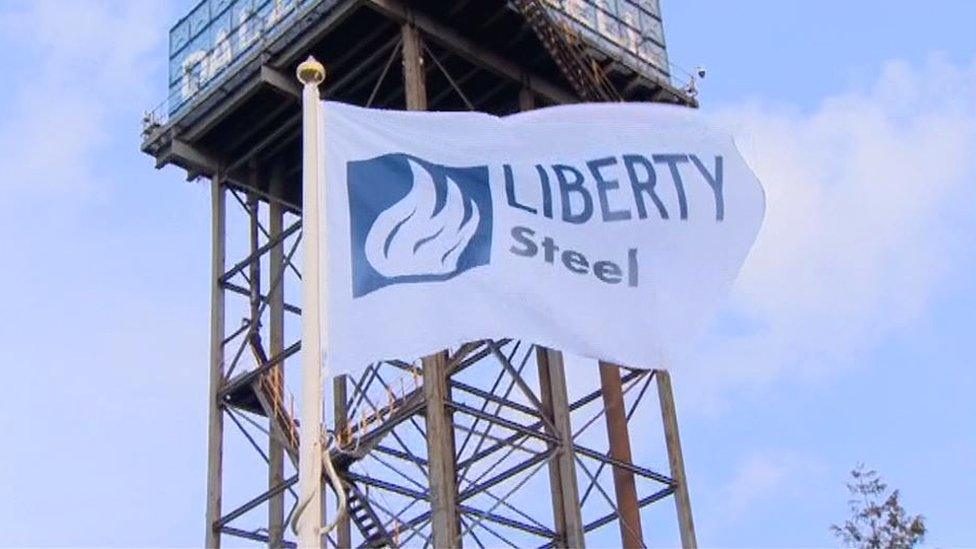
- Published8 April 2016
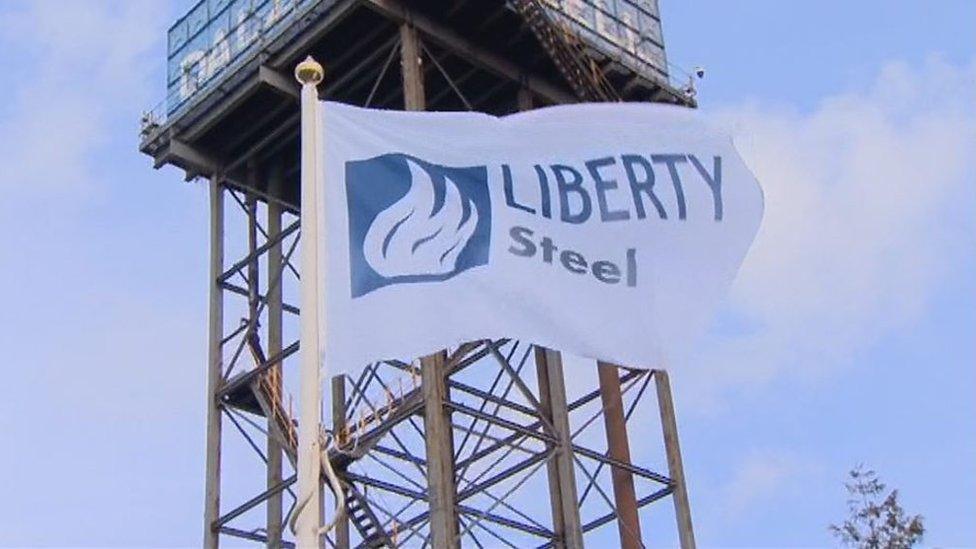
- Published24 March 2016
